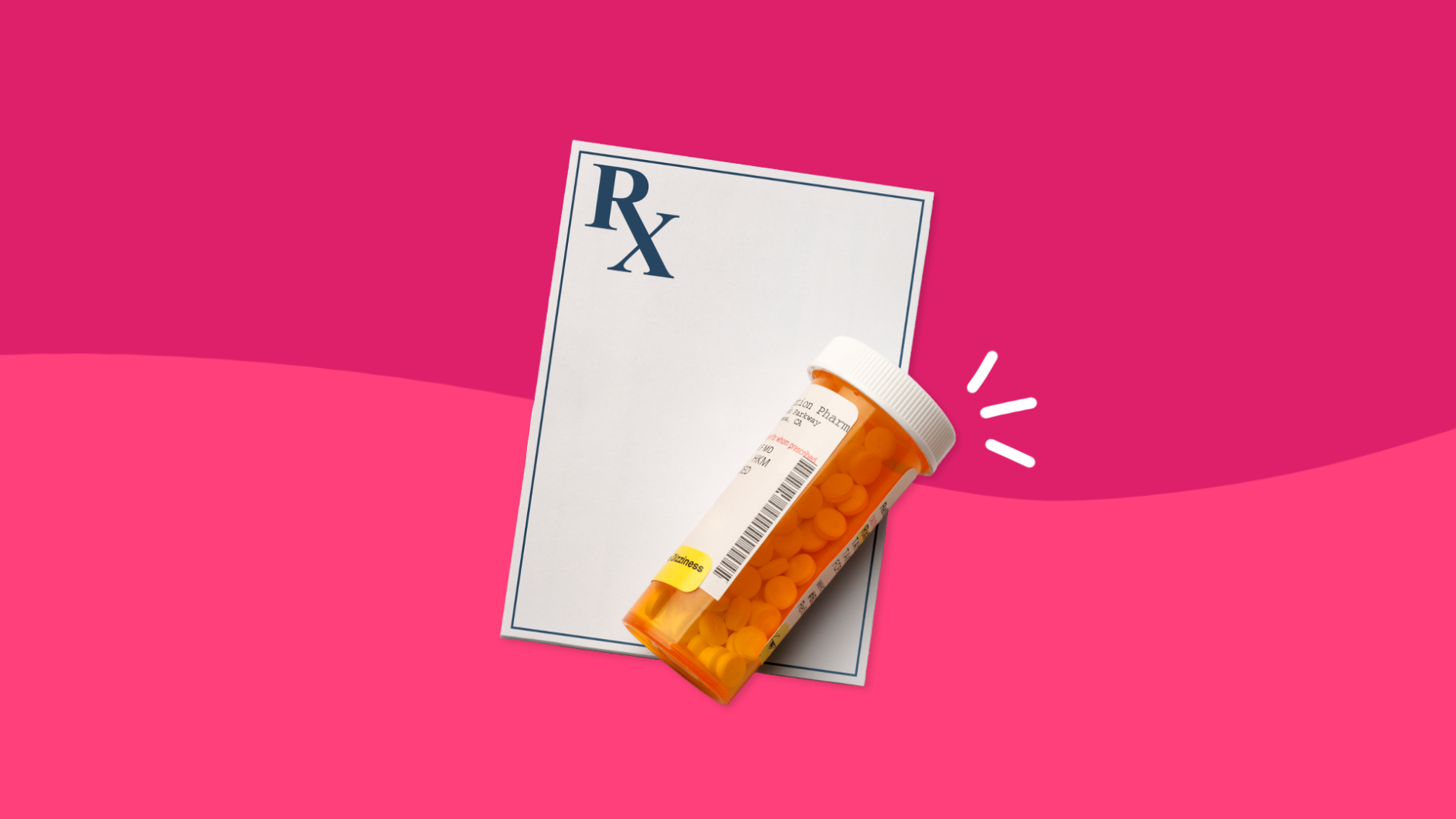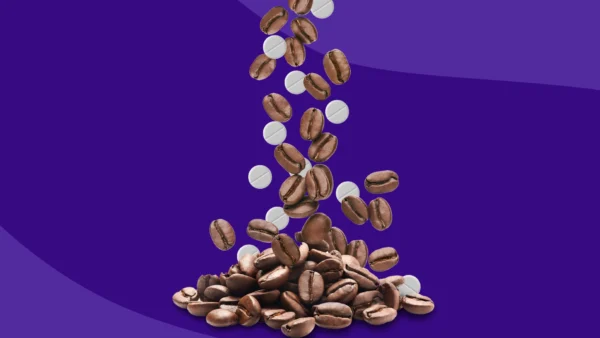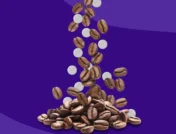Januvia side effects | Weight loss | Hypoglycemia | How long do side effects last? | Warnings | Interactions | How to avoid side effects
Januvia (active ingredient: sitagliptin) is a brand-name medication that helps reduce blood sugar in adults with Type 2 diabetes mellitus. Januvia should be used along with diet and exercise. Sitagliptin belongs to a family of drugs called dipeptidyl peptidase-4 inhibitors (DPP-4 inhibitors), but they’re usually just called “gliptins.” When blood sugar rises in the body after a meal, sitagliptin increases the body’s secretion of insulin, the hormone that triggers cells in the body to absorb sugar from the bloodstream. Sitagliptin also lowers the production of glucagon, a hormone that stimulates the liver to make glucose. Combined, these two effects help to reduce blood sugar after eating.
Some patients may take Januvia as a stand-alone treatment for diabetes. More frequently, however, people take Januvia along with one or two other diabetes drugs such as metformin, pioglitazone, glimepiride, or insulin. In fact, Merck markets two combination drugs containing sitagliptin: Janumet (sitagliptin and metformin) and Steglujan (sitagliptin and ertugliflozin).
Januvia, like other gliptins, has a low incidence of side effects. Still, anyone considering taking Januvia should be aware of possible side effects, drug interactions, and other reasons this drug may not be a good fit.
RELATED: Learn more about Januvia | Get Januvia discounts
Common side effects of Januvia
The most common side effects of Januvia are:
- Upper respiratory tract infection
- Stuffy, runny nose, or sore throat (nasopharyngitis)
- Headache
Serious side effects of Januvia
Januvia can cause side effects and some rare but serious side effects such as:
- Low blood sugar—interactions between Januvia with other diabetes medications increase changes of hypoglycemia.
- Swelling of the pancreas (pancreatitis)
- Kidney dysfunction or failure
- Severe and disabling joint pain
- Heart failure
- Large, fluid-filled blisters (bullous pemphigoid)
Severe allergic reactions have also been reported including:
- Anaphylaxis, a condition marked by skin rash, shortness of breath, and shock
- Angioedema, whose symptoms include facial swelling, rash, dizziness, and possible trouble breathing
- Stevens-Johnson syndrome, a severe skin reaction marked by blistering, rash, and skin peeling
Januvia and weight loss
Unlike some other Type 2 diabetes medications, Januvia and other gliptins are not associated with weight gain as a side effect. Weight loss, unfortunately, is also not a side effect of Januvia. Instead, Januvia is considered weight-neutral. However, some studies suggest Januvia may promote weight loss when combined with metformin, but other studies do not. An analysis of Januvia studies determined that patients taking Januvia had a modest but clinically insignificant drop in weight of just a few pounds.
Januvia and hypoglycemia
As with all diabetes medications, Januvia may cause blood sugar levels to drop too low. However, Januvia carries a lower risk of hypoglycemia than other blood sugar-reducing drugs. In initial clinical studies, healthy patients treated only with Januvia did not experience hypoglycemia.
The risk of hypoglycemia depends on the other diabetes drugs being taken along with Januvia. About 1–4% of patients in the initial clinical studies experienced hypoglycemia symptoms when taking Januvia with metformin, pioglitazone, or rosiglitazone. Januvia is most likely to cause hypoglycemia when combined with insulin or sulfonylureas, drugs that cause the body to secrete more insulin. In a 24-week trial, about 12–15% of patients taking Januvia with a sulfonylurea or insulin experienced hypoglycemia symptoms.
When taking diabetes medications, always be on guard for telltale signs of low blood sugar such as:
- Headache
- Drowsiness
- Irritability
- Dizziness/lightheadedness
- Hunger
- Weakness
- Jitteriness or feeling “shaky”
- Anxiety
- Sweating
- Fast heartbeat
How long do Januvia side effects last?
Minor side effects of Januvia such as headache and cold symptoms are temporary and usually fade after a while, or when the drug is discontinued. If symptoms persist or get worse contact your healthcare provider. Severe joint pain may usually resolve within a month after the drug is stopped. Hypoglycemia is a temporary problem that can be quickly resolved by taking fast-acting carbohydrate foods, glucose tablets, or an emergency glucagon injection. Other serious side effects such as kidney problems, pancreatitis, and heart failure will take longer to resolve even after Januvia is discontinued. Your healthcare provider will discuss side effects with you, and how to address them.
Januvia contraindications & warnings
Januvia is effective at reducing blood sugar and generally has minimal side effects. The FDA has not recalled the drug or issued any black box warnings. The use of Januvia does not result in dependency or abuse. Not everyone, though, may be an appropriate candidate for this medication.
Allergies
Anyone with allergies or a history of serious hypersensitivity reactions to Januvia, other DPP-4 inhibitors, or any of the inactive ingredients in Januvia should not take Januvia.
Type 1 diabetes
Januvia is not used to treat Type 1 diabetes.
Diabetic ketoacidosis
Januvia does not treat diabetic ketoacidosis.
Kidney disease
Healthcare professionals are advised to perform kidney function tests before prescribing Januvia and periodically while you take Januvia. In rare cases, sitagliptin has led to kidney impairment and even kidney failure severe enough to require dialysis. Patients with moderate or severe renal impairment or end-stage kidney disease requiring dialysis require a lower dose of Januvia.
Heart failure risk
The good news is that Januvia has never been linked to heart failure. The bad news is that two other DPP-4 inhibitors have, so the FDA has determined that all DPP-4 inhibitors, including Januvia, should be used cautiously in patients at risk for heart failure. A doctor will discuss the risk with people who have heart problems before prescribing Januvia.
Inflammation of the pancreas
Januvia has been associated with sometimes fatal pancreatitis, or inflammation of the pancreas, the organ that produces insulin and glucagon. It’s uncertain if Januvia is a risk in people who have a history of pancreatitis. However, it is advised that all patients taking Januvia are monitored for pancreatitis when they start taking Januvia.
Children
Januvia is not FDA approved for use in children younger than 18.
Seniors
In clinical trials, Januvia was as effective and safe among people older than 65 as among younger patients.
Pregnancy and breastfeeding
There is not enough research or information on pregnant women to determine if Januvia is safe to use during pregnancy. Animal studies show that sitagliptin does cross the placenta, but other animal studies show no increased risk of birth defects. On the other hand, uncontrolled blood sugar caused by gestational diabetes may cause a number of complications to the mother and baby, including birth defects or miscarriage. Pregnant women with gestational diabetes will need to discuss the relative risks and benefits of taking Januvia. Pregnant women who take Januvia will be asked by their healthcare provider to join the Merck Pregnancy Registry that monitors pregnancy outcomes.
There are no studies on whether sitagliptin is present in human milk or on its effects on nursing babies. Animal studies suggest that Januvia may be present in human milk. Nursing mothers should discuss the risks with a healthcare provider or consider another way to feed their infant.
Januvia interactions
Like all diabetes medications, Januvia has significant drug interactions that may require therapies to be monitored or modified.
Diabetes medications
Understandably, the most significant Januvia drug interactions involve blood sugar. Combined with medications that lower blood sugar—particularly other diabetes medications—Januvia can have an add-on effect and raise the risk of low blood sugar.
For this reason, other gliptins are to be avoided outright. These include:
- Nesina (alogliptin)
- Tradjenta (linagliptin)
- Onglyza (saxagliptin)
However, Januvia is normally prescribed along with at least one other diabetes medication (in a different diabetes drug class) that reduces blood sugar. Some diabetes drug combinations with Januvia only minimally raise the risk of hypoglycemia.
However, when Januvia is taken with sulfonylureas or insulin, the risk of hypoglycemia rises significantly. Combinations with these medications will require regular blood sugar monitoring and may require lowering the doses:
- Insulin
- Glimepiride
- Glyburide
- Glipizide
Drugs that lower blood sugar
Other prescription drugs may also reduce blood sugar. When taken with Januvia, there’s a small chance the combination might lead to hypoglycemia or even severe hypoglycemia. Therapy with the following drugs may need to be monitored:
- Antidepressants such as SSRIs
- Testosterone
- Some anti-parasite drugs such as hydroxychloroquine, quinine, or pentamidine
Many people don’t know that some foods and supplements can also lower blood sugar, such as:
- Alcohol (excess consumption)
- Garlic
- Ginseng
- Horse chestnut
- Flaxseed
- Fenugreek
- Aloe
- Ashwagandha
These foods and herbs may need to be put on hold for a while. Excess consumption of alcohol, in particular, should be avoided when taking Januvia.
Drugs that raise blood sugar
All diabetes medications lower blood sugar, but a surprisingly large number of medications raise blood sugar. Combining these drugs with Januvia or other diabetes medications could essentially cancel out the beneficial effects of taking diabetes medications. The most common drugs that might raise blood sugar include:
- Corticosteroids
- Birth control pills
- Stimulants (for ADHD)
- Oral decongestants such as Sudafed (pseudoephedrine)
- Systemic bronchodilators such as terbutaline or epinephrine
- Fluoroquinolone antibiotics such as ciprofloxacin
- Thiazide diuretics (water pills) commonly used to treat high blood pressure
- Antipsychotic medications
- Some anticonvulsants
- Some immunotherapy anticancer drugs
- Some immune-suppressing drugs such as tacrolimus
- Some HIV and hepatitis C antiviral medications
- Thyroid hormones
- Growth hormones
None of these drugs are to be avoided outright, but blood sugar needs to be monitored carefully when mixing these drugs with Januvia. Doses or therapies may need to be changed if blood sugar can’t be controlled.
Nicotine and niacin (vitamin B3) can also raise blood sugar, particularly in people with diabetes.
Beta blockers
Beta blockers are a special problem for people taking diabetes medications and can potentially interact with Januvia. Even worse, beta-blockers mask many of the symptoms of low blood sugar such as shakiness, irritability, and anxiety, raising the risk that a hypoglycemic episode will evolve into something more serious. Combining Januvia with beta blockers will require careful monitoring of blood sugar levels. Doses may need to be adjusted.
Januvia and digoxin
Digoxin is used to treat heart failure. When combined with Januvia, the concentration of digoxin in the blood increases slightly, possibly raising the risk of adverse effects. The prescribing information, however, does not recommend any dose adjustments. Therapy will have to be monitored.
How to avoid Januvia side effects
Although Januvia is generally considered a safe medication with relatively minimal side effects, the likelihood of experiencing side effects can be reduced by a few helpful suggestions:
1. Take Januvia as directed
Take the dose prescribed, usually 100 mg once daily. Januvia is taken every day, often with other medications. Don’t take extra medicine, cut the dose, or skip a day or two. If the medicine does not seem to be working or side effects are a problem, talk to the prescribing physician about changing the dose or switching to a new medication.
2. Tell your doctor about all your medical conditions and medications
Because of the risk of side effects, you should tell your doctor about all your physical conditions you have as well as all prescription and over-the-counter medications, supplements, and herbal remedies you take. They may not seem important, but this information could make treatment with Januvia safer.
Make sure you tell your doctor about any of the following physical conditions you might have:
- Kidney problems
- Pancreas problems
- Gallstones
- Heart problems
- High blood triglyceride levels
- A history of alcoholism
- Type 1 diabetes
- Diabetic ketoacidosis
- Any allergic reaction to Januvia
Before prescribing Januvia, the doctor will need to know if the patient is pregnant, nursing, or planning on becoming pregnant or breastfeeding a baby.
3. Monitor blood sugar
Januvia can be used alone or with other diabetes medications. Combining two or more diabetes drugs may require that you regularly monitor blood sugar. Your healthcare provider will instruct you on blood glucose monitoring, if applicable. Watch for signs of low blood sugar and always have a rapid source of sugar (such as glucose tablets or Smarties) and a glucagon emergency injection kit or nasal spray handy.
4. Keep a list of medicines being taken
Because so many medications can affect blood sugar, be sure to keep an up-to-date medication list at all times. Be ready to share that list whenever consulting with a doctor, pharmacist, or other healthcare provider.
Resources:
- Dipeptidyl Peptidase IV (DPP IV) Inhibitors, StatPearls
- Januvia, Epocrates
- Clinical utility of fixed combinations of sitagliptin-metformin in treatment of Type 2 diabetes, Diabetes, Metabolic Syndrome and Obesity: Targets and Therapy
- Efficacy and safety of sitagliptin added to ongoing metformin therapy in patients with Type 2 diabetes, Current Medical Research and Opinion
- Elevated Liver Enzymes, Cleveland Clinic
- FDA Drug Safety Communication: FDA adds warnings about heart failure risk to labels of Type 2 diabetes medicines containing saxagliptin and alogliptin, Food and Drug Administration (FDA)
- Januvia Information Sheet, Merck
- Pharmacokinetics and pharmacodynamics of sitagliptin, an inhibitor of dipeptidyl peptidase IV, in healthy subjects: Results from two randomized, double-blind, placebo-controlled studies with single oral doses, Clinical Pharmacology & Therapeutics
- Risk of cardiovascular events in patients with diabetes mellitus on β-blockers, Hypertension











